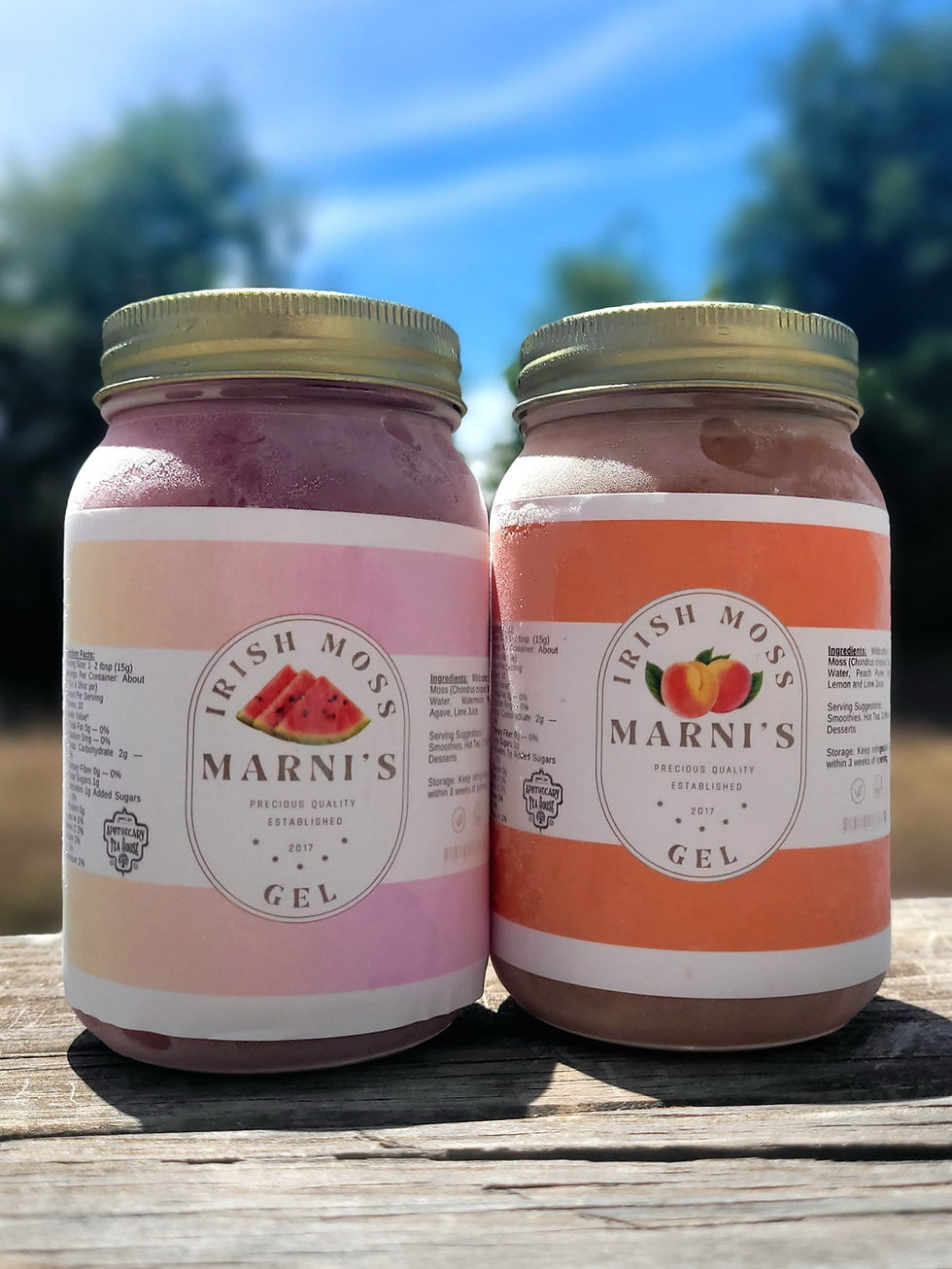7 Best Herbs for Increasing Iron
- Marni Woodson, Certified Clinical Herbalist

- Jan 27, 2023
- 4 min read

Why do we need iron?
Iron is an essential mineral for our bodies. It helps us form red blood cells, which are responsible for carrying oxygen throughout our bodies. Iron also helps us make energy from the food we eat, helps our immune systems fight off infection, and helps the body repair itself when it is injured. Without it, our bodies would not be able to function properly.
People who suffer from iron deficiency are considered to be anemic, and can experience constant fatigue, headaches, depression, memory issues, and a feeling of constant coldness. There are may different types of anemia, aka iron deficiency; the genetic and nutritional deficiencies are most common.
Which foods are Iron-rich?
Foods that are rich in iron include lean red meat, dark leafy greens such as spinach and kale, legumes, and nuts like cashews, almonds and pistachios. Iron-fortified cereals and grains are also a great source, as are certain fruits such as strawberries and raisins. If you’re looking to increase your iron intake, it’s best to incorporate a variety of these foods into your diet and a combination of the herbs we will talk about today.
Check out my list of 7 herbs to help Boost Iron Right Away
#7 Yellow Dock

Yellow Dock is an herb that has historically been used for a variety of medicinal purposes, particularly for cleansing the body and aiding in digestion. This mineral rich herb is known to contain high levels of iron, magnesium, calcium, potassium, manganese, and vitamins A and C. It has been used to treat anemia, constipation, skin problems, and minor infections. It can be consumed in a variety of forms, including tea, capsules, tinctures, and extracts. If you're considering using Yellow Dock for its medicinal properties, please consult a healthcare professional for advice on the dosage and safety of this herb.
#6 Dandelion

Dandelion is a great herb to have in your kitchen. I love using it in soups and they make a beautiful addition to salads. It has many medicinal properties and can be used for many different uses. For centuries dandelion has been called upon as diuretic to help reduce bloating, as an anti-inflammatory to reduce joint pain and swelling, and as a digestive aid to help with digestion and detoxification. Dandelion is iron rich and can improve liver and gallbladder function.
#5 Avocado

Avocados are a nutrient-dense food that has many health benefits! They are an excellent source of monounsaturated fatty acids, dietary fiber, and vitamins and minerals such as potassium, vitamin E, folate, and iron. Avocados can help reduce the risk of heart disease, lower cholesterol levels, and improve digestion.
They are also a great source of antioxidants that can help protect your body from free radicals and oxidative stress. Eating avocados can also help you feel fuller for longer and can help with weight loss. Finally, avocados can help improve skin health, reduce inflammation, and even boost cognitive performance.
#4 Parsley

Parsley is a fragrant, green herb that is popular in many cuisines. It is often used as a garnish, but is also a key ingredient in a variety of dishes, such as soups, salads, sauces, and stews. Parsley is a good source of vitamins A and C, as well as iron, potassium, and magnesium. It has a mild, slightly peppery flavor, and can be used to add flavor and nutrition to almost any dish. Historically parsley has also been used in abortifacient herbal protocols in folk medicine.
#3 Lemon

Lemons are a great source of vitamin C and other antioxidants, which help support the body's immune system. They can also help reduce inflammation, lower blood pressure, improve digestion, and aid in weight loss. Lemons are also known to have antibacterial and anti fungal properties, which can help fight off infections. Drinking lemon water is a great way to start your day as it helps to flush out toxins and get your body hydrated and energized.
#2 Alfalfa

Alfalfa is an herbaceous plant that is commonly used as an herbal remedy. It is an excellent source of many vitamins and minerals, including vitamin A, B, C, E and K, as well as iron, calcium, magnesium and potassium. Alfalfa is one of the the rare herbs to contain Vitamin U. Alfalfa has been traditionally used to treat a variety of ailments, such as digestive problems, arthritis, inflammation, fever and even heart disease. It can also be used to make tea and added to salads, soups and other dishes.
#1 Stinging Nettles

Stinging Nettles, this earthy herb has been used for centuries for its medicinal properties. I love to drink a cup of nettles, alfalfa, and tulsi to help boost my mineral intake for the day. Nettles can be used to treat a number of conditions and ailments, such as arthritis, allergies, and urinary tract infections. It contains vitamins A and C, and minerals such as calcium, iron, and potassium.
This herb has been shown to have anti-inflammatory and antioxidant properties and has been proven to mimic insulin. Stinging Nettles is often made into teas, tinctures, and ground for capsules and can be taken as a supplement or applied topically as a paste or poultice. I have even used fresh nettles to make fun cakes and the color is amazing!
Look for these herbs in your local farmers market or endeavor to perhaps grow a few on your own too! Happy Herbing!



Comments